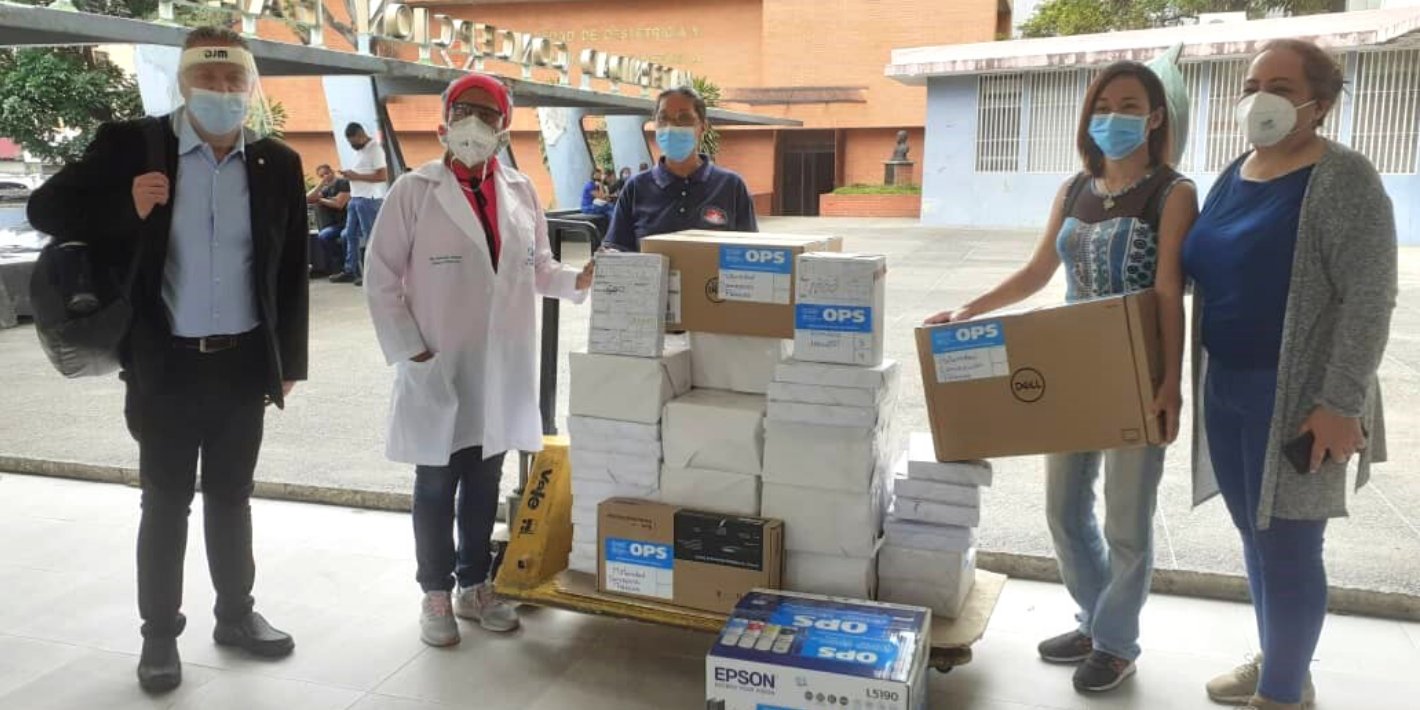
Venezuela has started the pilot plan for the implementation of the Perinatal Information System (SIP), as part of the Concerted Strategy for the Reduction of Maternal and Neonatal Mortality, implemented since 2019 by the Pan American Health Organization (PAHO) and the Ministry of the People's Power for Health (MPPS).
In June 2021, with the contribution of the Swiss Cooperation in Venezuela, through the project “Protecting the Health of the Most Vulnerable in the Bolivarian Republic of Venezuela”, PAHO installed the SIP in maternity hospitals in four states of the country: the Maternidad Concepción Palacios, located in the Capital District; the Hospital Materno Infantil Dr. Joel Valencia Parpacén, Miranda state; the Hospital Central Hospital de Maracay, Aragua state; and the Maternidad del Sul "Dr. José María Vargas", Carabobo state.
The four maternity hospitals that started implementing the SIP in Venezuela already have local teams trained in workshops held in each establishment to use the system. In addition, they were the first hospitals to receive the equipment and supplies needed to implement the plan; complete computers were delivered, with all the equipment including programs, user manuals and printed forms.
“This initiative represents a milestone to strengthen the maternal and perinatal health information system in Venezuela. It seeks to optimize the recording and processing of data in obstetric and neonatal services, as a basis for care planning and informed decision making”, explains Ariel Karolinski, PAHO's Family, Health Promotion and Life Course (FPL) advisor in Venezuela.
The SIP consists of a group of instruments designed for use in obstetrics/gynecology and neonatology services. These are the perinatal clinical record, the perinatal card, the abortion form, the partogram, the neonatal hospitalization clinical record, the neonatal daily sheet, the maternal and neonatal respiratory infection cards - COVID-19 and the local data capture and processing programs.
“The importance of SIP PLUS is to have a useful and easy-to-use tool that optimizes the recording and processing of health information in obstetric and neonatal services in hospital centers, allowing the data collected to serve as a basis for planning future care at the level of policies, programs and services,” adds Suzanne Serruya, director of PAHO’s Latin American Center for Perinatology/Women’s and Reproductive Health (CLAP).
Regarding the impact of the COVID-19 pandemic on the population of pregnant women and newborns, Marisol Alvarado, MPPS Maternal Health, Sexual and Reproductive Health advisor, says that having the SIP forms for COVID-19 is a useful tool for the collection of complete information on detected cases of mothers and newborns since the beginning of the pandemic, in March 2020 (retrospective component) and prospectively since the present time. Once these data are consolidated in the national SIP database in Venezuela and the results are analyzed with technical advice from PAHO, the MPPS will oversee disseminating the information for decision making.
The SIP work team in Venezuela is composed of professionals from the MPPS at the central level and their work teams in the selected health centers; the PAHO technical team at the regional level, the Representation in Venezuela and CLAP.



